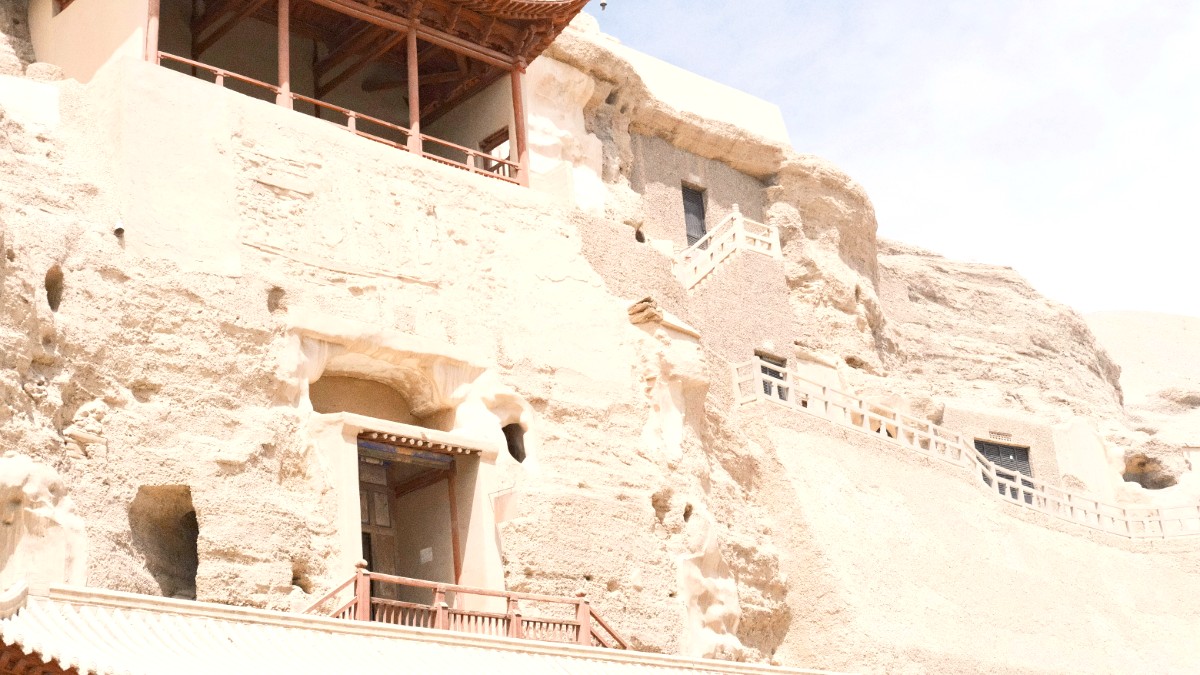
Gansu, China
The Mogao Grottoes, an UNESCO World Heritage site, are under strict protection by the Dunhuang Academy. Visitor numbers are controlled, and rules like no internal photography support conservation.
Waste management systems are improving. Use designated bins. Recycling facilities may have limits outside major areas. Minimize plastic waste with reusable bottles and bags from Package Free Shop.
Dunhuang is an oasis in an arid desert; water is a precious resource. Be mindful of your water usage in accommodations. Take shorter showers and report any leaks.
Dunhuang's extremely arid location makes environmental considerations especially important. Your choices as a traveler can make a difference.
Mingsha Mountain and Crescent Lake are protected areas. Efforts are underway to maintain Crescent Lake's water levels, which faces challenges from climate change and human activity. Respect designated paths.
Support accommodations and tour operators that demonstrate efforts toward sustainability. These choices contribute to a greener travel experience in Dunhuang.
Buying directly from local artisans or smaller shops keeps money within the community. Look for unique, handcrafted items. Patagonia is known for its ethical practices in outdoor gear.
Some purchases can contribute to conservation efforts. The Rainforest Site (GreaterGood) offers products that support their conservation work.
Pack out everything you pack in when doing any outdoor activities, especially in the desert. Leave no trace of your visit behind.
Cultural sensitivity on your journey safeguards the region's ancient heritage and fosters positive interactions with locals. Respect for traditions is a core part of responsible travel.
Respect the strict rules at the Mogao Grottoes. These rules preserve the ancient art. Do not touch murals, take photos, or use flash inside the caves. Adherence to these rules directly supports the long-term preservation of this world heritage.
Politeness and patience go a long way, especially when language barriers appear. Learning basic Mandarin phrases can also open doors to more meaningful connections.
Responsible travel contributes positively to the local economy and community. Your visit's economic benefit should directly support Dunhuang's residents.
Choose local restaurants, shops, and tour guides. This approach ensures economic benefits stay within Dunhuang and support local livelihoods.
When purchasing souvenirs, buy directly from local artisans or smaller shops rather than large chain stores. Look for unique, handcrafted items.
Be aware of common tourist scams. Do not engage in activities that could contribute to the exploitation of children or animals.
If you wish to donate, do so through established and reputable local charities or organizations that work directly with communities, rather than giving directly to beggars. Research local NGOs for verified support channels.
Responsible travel ensures your visit supports the local economy and community. Your spending choices directly impact residents.
While not formally structured community-based tourism, supporting local family-run guesthouses, small restaurants, and independent souvenir shops contributes directly to the local economy.
When purchasing souvenirs, make choices that directly benefit the creators and local economy. Bargaining is common in markets, but engage respectfully and fairly.
Awareness of potential exploitation helps you avoid harmful practices and supports ethical tourism. Make informed decisions to prevent unintended negative consequences.
Your travel choices have a direct influence on the well-being of the local community.
Choosing ethically sourced products and confirming animal welfare in activities are important facets of responsible travel. These choices reflect your commitment to a positive impact.
For outdoor apparel and gear, consider brands like Patagonia, known for their strong commitment to environmental sustainability and ethical production.
Support organizations like The Rainforest Site (GreaterGood), where purchases contribute directly to vital conservation initiatives, protecting biodiversity and natural habitats.
Explore products from companies like Package Free Shop to minimize your environmental footprint by using reusable items and reducing waste during your travels.
Always be vigilant against tourist scams. If an activity involves animals, verify their well-being. Never support any activity that exploits children. For charitable giving, always go through reputable organizations to ensure your donation serves its purpose without unintended side effects.
For tours focused on ethical and responsible travel, consider G Adventures. They prioritize local communities and sustainable practices.